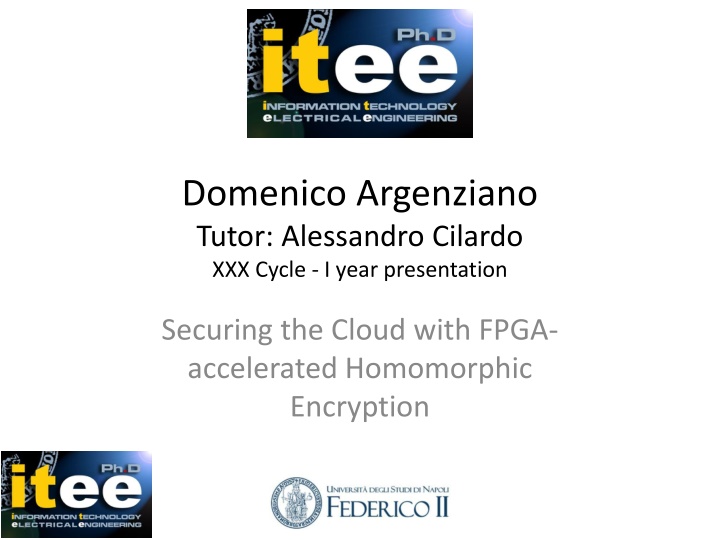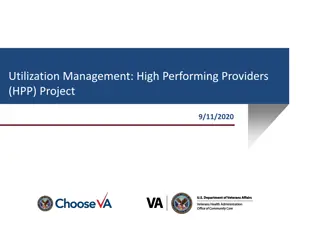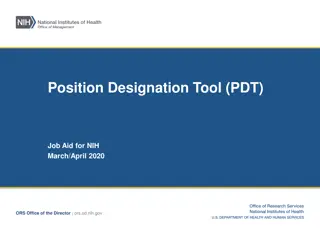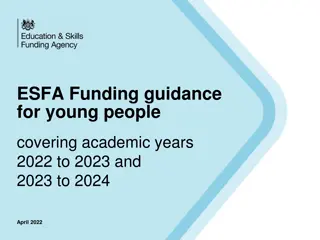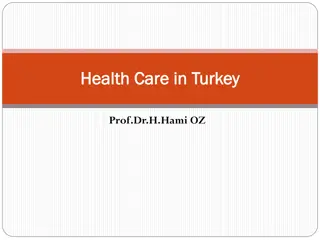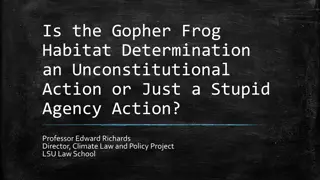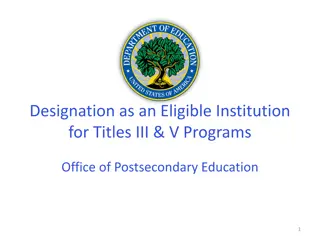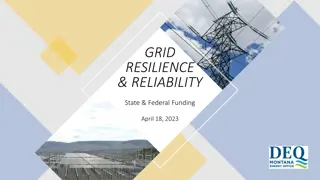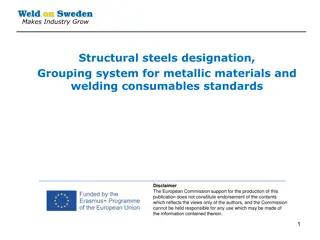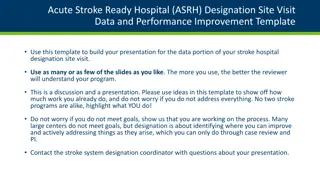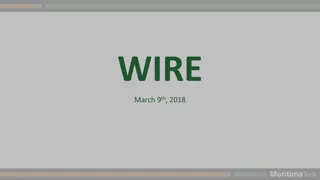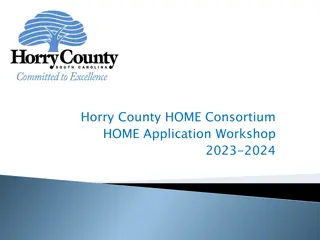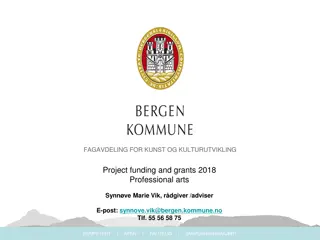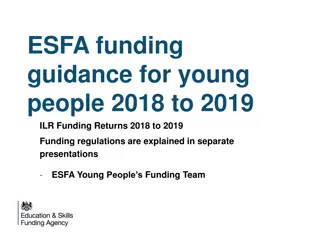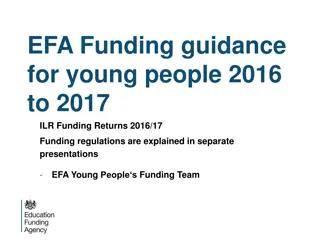Eligible Institution Designation for Funding Programs
Process to identify higher education institutions eligible for funding under Titles III and V of the Higher Education Act, with information on application criteria and eligibility requirements.
Download Presentation

Please find below an Image/Link to download the presentation.
The content on the website is provided AS IS for your information and personal use only. It may not be sold, licensed, or shared on other websites without obtaining consent from the author.If you encounter any issues during the download, it is possible that the publisher has removed the file from their server.
You are allowed to download the files provided on this website for personal or commercial use, subject to the condition that they are used lawfully. All files are the property of their respective owners.
The content on the website is provided AS IS for your information and personal use only. It may not be sold, licensed, or shared on other websites without obtaining consent from the author.
E N D
Presentation Transcript
Domenico Argenziano Tutor: Alessandro Cilardo XXX Cycle - I year presentation Securing the Cloud with FPGA- accelerated Homomorphic Encryption
Background MSc.: Laurea Magistrale in Ingegneria Informatica MSc. Thesis in Embedded Systems Current Research Group: Computer Architectures and Reconfigurable Hardware Tutor: Alessandro Cilardo 2
Homomorphic Encryption Performing computation directly on ciphertexts Enc(A + B) = Enc(A) + Enc(B) Enc(A * B) = Enc(A) * Enc(B) Delegating computation to third untrusted party (Cloud Server) Very computing intensive 3
Our goal Design and develop an FPGA-base accelerator for homomorphic primitives. Meant to be used in an heterorogeneous computing environment (HPC/Cloud) An ad-hoc solution, alternative to software- only approaches. 4
Training Study of advanced algebraic topics Study of best algorithms for the most critical operations: modular addition/multiplication on very long operands (~ 100K bits) Study of the state-of-the-art research: Most solutions are CPU/GPU based Just a few are FPGA/ASIC based 5
Our contribute Design of a distributed on-chip accelerator Easily scalable wrt shared memory approach used in existing literature Suitable also for off-chip scenario (e.g. more boards interconnected FPGA-specific optimizations 6
First Results Currently, most key component have been developed and tested. Preliminary results show a substantial performance speed-up and lower resource usage wrt similar solutions Next steps: put together the whole distributed architecture, physical verification (FPGA-in- the-loop) 7
Products Altera sInnovate Europe Context, Best Project in SoC Design award. Two accepted articles for: 10th International Conference on P2P, Parallel, Grid, Cloud and Internet Computing 3rd International Workshop on Cloud and Distributed System Applications A third article submitted for Design Automation and Test in Europe (DATE16) 8
Current work Project proposal which integrate Homomorphic Encryption with Information Flow Control techniques. Mixing computing on uncrypted and crypted data Prevent information leakage through language semantics Static (compiler) or dynamic (monitor) approaches 9
Project WISCH Fellowship won in July Working on the project from August Research activity directed by prof. Clemente Galdi Designing a cryptographic filesystem running in a Trusted Execution Environment Enforcing security policies 10
1 year credits Modules Seminars Research Credits 24 1.2 35 12
Next year training Module CFU Network Security 6 Machine Learning and appl. 6 Advanced computer architecture 6 13
